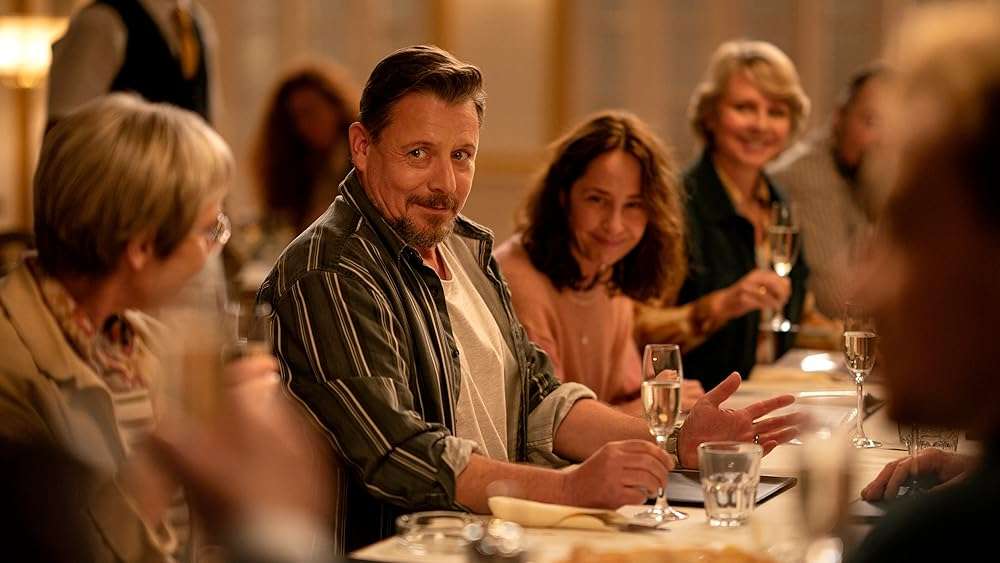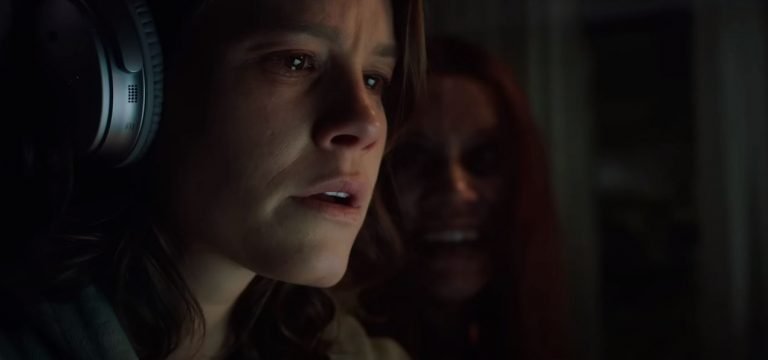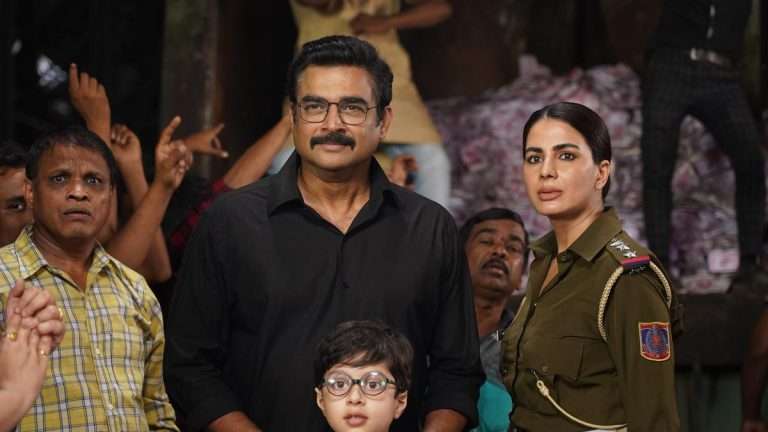‘I feel like I want to strangle you.’ This line, told by the ‘Rose’ main character, Inger (Sofie Gråbøl), who stars in Niels Arden Oplev’s (The Girl with the Dragon Tattoo, 2009) latest drama, perfectly captures the balance between the tender and the anguish the film wants to convey -most of the times succeeding in its small-scale version of the events, but at times inadequate in its grand explanations. ‘Rose’ is the cinematic narration of a 1997 summer bus trip from Denmark to Paris. The middle-aged Inger, now a schizophrenic patient, had once visited the country in her youth and fallen in love – we learn that love failure was detrimental to her condition.
The trip from the Danish mental institution to Paris (even with a Valium pill always handy) is her decision and a chance to get away from the consistently worrying mother. Inger is accompanied by her sister (and temporary guardian) Ellen (Lene Maria Christensen) and her husband Vagn (Anders W. Berthelsen, an always welcome regular in the director’s oeuvre). Niels Arden Oplev’s films are busy dealing with close communities on the verge of distress, and ‘Rose’ is no exception.
The bus passengers have to survive harmonically with Inger, and tensions will arise. The middle-aged conservative teacher Andreas (Søren Malling) will soon be ‘forced’ to emit phobic statements, especially after Inger takes the initiative to announce her illness. His inquiring boy Christian (Luca Reichardt Ben Coker), on the contrary, finds himself attached to the still congenial Inger, who won’t be afraid to be frank about sex when everyone else pretends to be prudent.
And yet the film, like Niels Arden Oplev’s other fine drama of exclusion, ‘Worlds Apart’ (2008), will neither go into a claustrophobic territory nor rest on confrontation. It leaves its central character the means to challenge her prescribed future and make the trip to Paris a resounding success. Niels Arden Oplev uses the exotic Paris formula as a writing tool to bring both schizophrenia to the front and delimit any sentiments that may associate the illness with an incapacitated person (as Inger feels she cannot walk without a wheelchair during the film’s first half).
His camera roams effortlessly into a sunny, bright Paris (warm cinematography by Rasmus Videbæk), in which the group of bus passengers watch the bedazzled but still rationally capable Inger to either get lost from sight or help everyone else to order their food (she’s the only one with a French language proficiency).

‘Rose’ feels like a more sober version of ‘Mrs. Harris Goes to Paris’ (2022), with Sofie Gråbøl substituting for Lesley Manville here; her pink/reddish outfits always recall a fragile state that needs to be mended and never signal an outside danger. Here, Paris is the travelers’ city of light but with some necessary amends regarding its multicultural identity. It is a bold (and welcome) move from the writer-director to make a long-lost love the centerpiece of his film. Inger in ‘Rose’ is a person who eventually needs to settle her love affairs with the past (don’t we all?)
The film’s tone seems to lie dangerously light for its topic, and it is not always clear why love loss needs to be (without any further elaboration) the primary cause of Inger’s illness – and everyone else, including her domineering mother, gets removed from the foreground as a result. The beautifully lit but narratively unnecessary flashback scenes strengthen the too-romantic-to-be-true notion. And, while its narrative arc renews itself in the film’s third act with a new subplot and potential love interest, the resulting pairing (even for a brief time) of tormented souls looks hasty and forced.
But, after all, ‘Rose’ is a film whose symbolic force of the (physical, spiritual) death from love moves to the royal level. The story of Princess Diana (another love punished, here by death) is paramount to the whole narrative web, and the constant piano sounds of the soundtrack give a mourning tone that is both welcome and therapeutic. Yet what keeps the film from a schmaltzy trajectory is the relationship between the two sisters. Ellen has never been Inger’s guardian, and she must undertake that role and regain the sister’s trust on her own, independent terms.
Ellen is the one who insists on not overloading Inger with medicine that calms her to the point of taking away her willpower. Her character (and the restrained acting by Lene Maria Christensen testifies to this) is the closest to the concerned person and relative: full of guilt, responsibility, and a feeling of care for her sister, at the same time, balancing her new marital life. She anchors the film.
Sofie Gråbøl is pitch perfect in ‘Rose’; her look and behavior lead away from sad stereotypes of schizophrenic patients. Without missing a beat, she can tailor herself from a helpless person to a savior of the whole trip agenda, a factor that adds to the film’s authenticity and lack of easy solutions. ‘Rose’ is a film that moves effortlessly, essentially being a travelogue story, guiding from one racist character to the next sympathetic one.
It includes well-deserved comedic turns accompanied by expected (but still suspenseful) moments of concern. But it predominantly functions as a well-designed plea for life after love, no matter how damaged its agents will eventually be. Its origin story and romance look less rehearsed, but the main character’s determination is unmistakable and makes up for a cherished, humane film.



![Trapped [2017]: A Nail-biting Survival Thriller](https://79468c92.delivery.rocketcdn.me/wp-content/uploads/2017/03/trapped1-768x432.jpg)


![Karwaan Amazon Prime Review [2018]: A Subtle Detour From Loud Comedies](https://79468c92.delivery.rocketcdn.me/wp-content/uploads/2019/06/Karwaan-Amazon-Prime-featured-and-post-1-768x415.jpg)